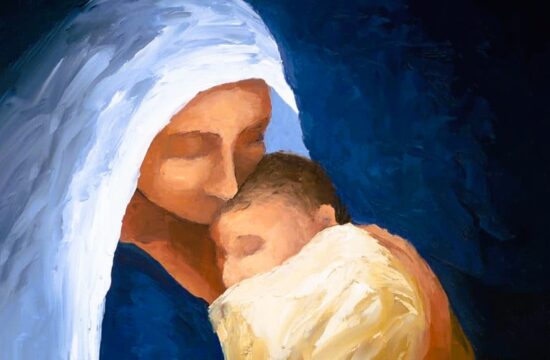It’s not every day that the passing of a municipal court judge makes international news. But last week, people around the world paused to remember Judge Frank Caprio of Providence, Rhode Island, known by many as “America’s nicest judge.” Maybe you’ve seen the clips online—people from all walks of life coming before his bench, expecting only justice, but instead finding mercy. Judge Caprio became famous, in part, because his kindness and patience were so extraordinary that they stood out in a world where compassion can feel in short supply.
Thank you for taking the time to read this homily for the 21st Sunday in Ordinary Time (August 24, 2025). Your support means a great deal to me, and I’m deeply grateful for the many who share these messages with their friends, families and social media followers. If you’ve found meaning in these words, I’d be grateful if you’d share them with others who might benefit.
And for those who prefer listening, you can find the audio version on SoundCloud HERE or subscribe to the podcast on iTunes HERE. Your comments, messages, and the way you’ve embraced these homilies continue to inspire me. Sincerely in Christ -Father Ji
He listened to people’s stories. He recognized the difference between an excuse and a cry for help. Sometimes, he’d pay a defendant’s fine out of his own pocket—not to excuse wrongdoing, but to lift someone up when they were down. His courtroom became a place where justice met mercy—where law was never separated from love.
Judge Caprio often spoke about the lesson that shaped his entire career, a lesson he learned on his very first day on the bench. He wanted to impress his father, who was sitting in the gallery, so when a struggling mother came before him—rude, overwhelmed, with three kids and four unpaid parking tickets—he decided to show how tough he could be. He fined her the full amount. Afterward, he went to his father, expecting praise. Instead, his father looked at him and said, “She was scared. She had no money. Now she might not be able to feed her children. That’s not the way you were brought up.” That moment changed him. He realized that true justice, the justice God wants from us, is never separated from compassion and understanding.
Today’s Gospel presents us with a moment of reckoning. As Jesus makes his way toward Jerusalem, people ask him, “Lord, will only a few be saved?” It’s a question that sounds simple on the surface—one many of us have probably wondered at some point. But if we look deeper, it reveals a certain presumption. It assumes that some are “in” and some are “out,” that salvation is a matter of belonging to the right group or having the right status.
Jesus doesn’t answer with a number or a list of who qualifies. Instead, he offers a challenge to everyone listening: “Strive to enter through the narrow door.” It’s a call that cuts through complacency and presumption alike. Don’t assume you’re saved just because you’re here, or because you think you’ve done enough. Make every effort. Strive.
This is a moment where Jesus’ love challenges us. He’s not offering cheap assurance or easy comfort. He wants us to be honest about our journey of conversion—to keep growing, keep striving, keep allowing God to shape us into the people He calls us to be. The journey to holiness doesn’t end until we stand before God.
And it’s not just a personal challenge. The readings remind us God’s invitation is for all. Isaiah speaks of God gathering nations from every language, and Hebrews tells us God disciplines those He loves, that hardship is part of our growth as His children.
So what does it mean to strive? It means more than just following rules or attending Mass. It means daily, sometimes difficult work—letting God stretch us, correct us, change us—so we can love more deeply, forgive more freely, and serve more generously. It means humility: never assuming we’ve arrived, never measuring ourselves by the world’s standards, but by Christ’s.
There’s something important here—especially in our day and age—that we often overlook. When someone dies, especially someone we love, it’s natural to want to believe they are immediately with God in heaven. We want to canonize them at their funeral. We focus on their good qualities—their kindness, their faithfulness, their sense of humor. And that’s good and right. But the Church, in her wisdom, teaches us not to presume, not to stop at praise, but to pray. To pray for the dead is not to doubt God’s mercy, but to take Jesus’ words seriously: “Strive.” Because salvation is a gift, but it’s also a journey. Very few of us arrive at the end of our lives without something left unfinished—some anger, some wound, some selfishness, some sorrow not fully healed.
That’s why God has given us the hope of purgatory—a time of purification for those things to occur so our souls are ready for the perfection of Heaven.
That’s why we pray for the dead. That’s why we offer Masses for them, light candles, and remember them in our petitions. We’re not just being sentimental—we’re participating in the work of mercy, helping to clear away anything that might keep them from fully entering into God’s embrace. Our prayers are a way of striving for them, helping them to let go of what still weighs them down, to be healed, to be made whole. We believe that even after death, love can still reach the beloved. We believe that God’s mercy is so vast, so persistent, that it works through our prayers, our sacrifices, our acts of love.
This is exactly what Pope Leo XIV reminded us at his General Audience just this past week. Reflecting on the Last Supper, he recalled the moment when Jesus offered Judas a morsel of bread—knowing Judas was about to betray him. Pope Leo called it “love’s last attempt not to give up.”
He went on to say: “Jesus’ love does not cease in the face of rejection, disappointment, even ingratitude. That morsel tells us that God does everything—absolutely everything—to reach us, even in the hour when we reject Him.” And then he added: “Forgiveness is not weakness—it is the power to set another free, to keep love alive, even when everything seems irredeemably compromised.”
That is the power of mercy. If Jesus could reach out even to Judas, then surely no one is beyond our prayers. Surely no one is beyond God’s mercy. That’s why we pray for the dead. That’s why we refuse to give up on anyone—living or deceased.
Judge Caprio’s life is a witness to this kind of striving—not just for himself, but for everyone who came into his courtroom. He didn’t just judge; he helped. He didn’t just enforce the law; he looked for the story behind the infraction, the person behind the problem. His mercy didn’t excuse wrongdoing, but it offered hope and a second chance. That’s the kind of striving Jesus calls us to: one that doesn’t just focus on ourselves, but reaches out, lifts up, and brings others along.
So let’s take this Gospel seriously. Let’s resist the temptation to presume we’re “in,” just because we’re here, just because we know the right words. Let’s ask ourselves, every day: Am I striving? Am I letting God challenge me, correct me, change me? Am I helping others along the way—not just in this life, but into eternal life? Do I pray for those who have died, trusting in God’s mercy and doing my part to help them reach the fullness of His love?
One day, each of us will stand before the Judge—not Judge Caprio, but Christ Himself. And in that moment, what will matter most is not our excuses, not our accomplishments, not our titles, but whether we strove to love. Did we show mercy? Did we pray for others? Did we help one another along the way?
Here’s the truth: the door into His kingdom is narrow. Not narrow to keep us out, but narrow so that nothing unnecessary can come with us—no pride, no grudges, no selfishness. The question is not “Will I fit?” but “What am I willing to leave behind so that I can pass through?”
So let us live in such a way that when that final moment comes, and we stand before the Judge at the narrow door, He will look at us—not only seeing our sins, but recognizing His own mercy shining through our lives. And may He say to us: “You strove. You loved. You prayed. Well done, good and faithful servant. Enter into the joy of your Lord.”











